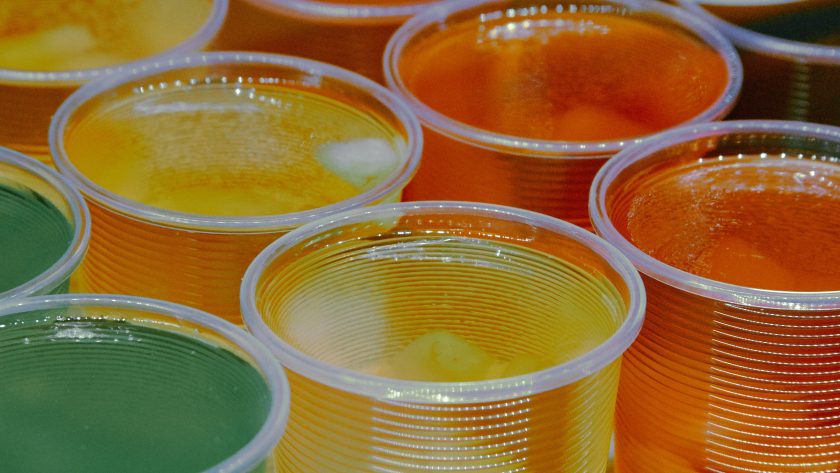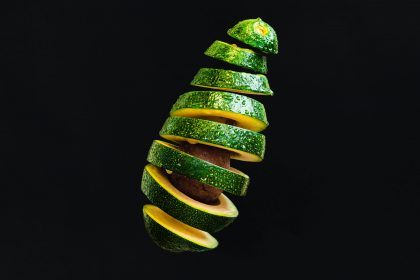Today, I want to tackle a question that has been popping up quite frequently: Is sugar-free Jello bad for you? We all love indulging in some guilt-free treats now and then, but it’s essential to understand what we’re putting into our bodies. So, let’s dive right in and explore the facts about sugar-free Jello.
- Understanding Sugar-Free Jello
- The Pros of Sugar-Free Jello
- The Cons of Sugar-Free Jello
- Moderation and Personal Choices
- The Importance of Reading Labels
- Alternatives to Sugar-Free Jello
- Consulting a Healthcare Professional
- Understanding Artificial Sweeteners
- Finding Balance in Your Diet
- Can I enjoy guilt-free indulgence with sugar-free Jello?
- Are there any health benefits to choosing sugar-free Jello?
- Does sugar-free Jello contain any harmful ingredients?
- Can sugar-free Jello cause digestive issues?
- Is sugar-free Jello suitable for individuals with diabetes?
- Does sugar-free Jello help with weight loss?
- Can sugar-free Jello be part of a healthy diet?
- Are there any alternatives to sugar-free Jello?
- Can I consume sugar-free Jello if I have a food sensitivity or allergy?
- Is it possible to overconsume sugar-free Jello?
Understanding Sugar-Free Jello
What is sugar-free Jello? Sugar-free Jello is a gelatin dessert that is sweetened with artificial sweeteners instead of traditional sugar. It’s often marketed as a healthier alternative to regular Jello, as it contains fewer calories and carbohydrates.
Sugar-free Jello can be a delightful treat that satisfies your sweet tooth without adding unnecessary calories and sugar to your diet.
Artificial sweeteners in sugar-free Jello: Most sugar-free Jello products use artificial sweeteners like aspartame, sucralose, or stevia to achieve their sweet taste. These sweeteners are highly potent, which means a little goes a long way in terms of sweetness.
The Pros of Sugar-Free Jello
Sugar-free Jello does have some advantages that make it appealing to health-conscious individuals. Here are a few pros to consider:
- Reduced calorie content: Compared to regular Jello, sugar-free varieties contain significantly fewer calories. This can be beneficial if you’re watching your calorie intake or trying to manage your weight.
- Lower carbohydrate content: Since sugar-free Jello relies on artificial sweeteners, it typically has a lower carbohydrate content than its sugary counterpart. This can be advantageous if you’re following a low-carb or ketogenic diet.
- Suitable for individuals with diabetes: Sugar-free Jello can be a suitable dessert option for individuals with diabetes who need to monitor their blood sugar levels. However, it’s always best to consult with a healthcare professional for personalized advice.
The Cons of Sugar-Free Jello
While sugar-free Jello does offer some benefits, it’s essential to be aware of potential drawbacks as well. Here are a few cons to consider:
- Artificial sweeteners: Sugar-free Jello relies on artificial sweeteners, which may not appeal to everyone. Some individuals may have a preference for natural sweeteners or find that artificial sweeteners have an aftertaste.
- Digestive issues: The consumption of excessive amounts of sugar-free products, including Jello, that contain sugar alcohols like maltitol or sorbitol may cause digestive discomfort such as bloating, gas, or diarrhea in some individuals.
- Limited nutritional value: While sugar-free Jello may be low in calories and carbohydrates, it doesn’t provide significant nutritional value. It lacks essential nutrients like protein, vitamins, and minerals that are crucial for a balanced diet.
Moderation and Personal Choices
As with any food or drink, moderation is key when it comes to enjoying sugar-free Jello. It can be a part of a well-rounded diet, but it shouldn’t be relied upon as a primary source of nutrition. Incorporating a variety of nutrient-dense foods is essential for optimal health.
Some people prefer high calorie large McDonalds fries.
Additionally, personal preferences play a significant role in determining whether sugar-free Jello is a suitable choice for you. If you enjoy the taste and don’t experience any negative effects, it can be an occasional treat within a balanced diet.
The Importance of Reading Labels
When considering sugar-free Jello or any other food product, it’s crucial to read the labels carefully. This allows you to make informed decisions about what you’re consuming. Pay attention to the ingredient list and look out for any potential allergens or additives that you may want to avoid.
Additionally, be aware of the serving size indicated on the packaging. While sugar-free Jello may seem like a low-calorie option, consuming large portions can still contribute to an excessive intake of artificial sweeteners or other ingredients.
Alternatives to Sugar-Free Jello
If sugar-free Jello doesn’t align with your preferences or dietary needs, there are alternative options available. Consider exploring other desserts that are naturally sweetened or utilize healthier ingredients.
One popular alternative is making homemade gelatin desserts using natural sweeteners like fruit juice, honey, or maple syrup. These alternatives provide a more wholesome and nutritious option while still satisfying your sweet tooth.
Remember, variety is the spice of life, and exploring different desserts can introduce you to new flavors and textures that you may enjoy even more than sugar-free Jello.
Consulting a Healthcare Professional
If you have specific health concerns or dietary restrictions, it’s always wise to consult with a healthcare professional or a registered dietitian. They can provide personalized advice based on your individual needs and help you make informed decisions about whether sugar-free Jello or other food choices are suitable for you. Be aware also how much calories in a shrimp.
A healthcare professional can assess your overall health, address any potential risks or concerns, and guide you towards a well-balanced diet that meets your nutritional requirements.
Understanding Artificial Sweeteners
Artificial sweeteners are the key components in sugar-free Jello that provide the sweet taste without the added sugar. It’s important to understand these sweeteners and their potential effects.
- Aspartame: Aspartame is a commonly used artificial sweetener found in many sugar-free products. It is considered safe for consumption by regulatory authorities, but some individuals may be sensitive to it or experience adverse effects. If you have a known sensitivity to aspartame, it’s best to choose sugar-free Jello varieties that use other sweeteners.
- Sucralose: Sucralose is another widely used artificial sweetener that is considered safe for consumption. It has a similar taste to sugar and is often used in sugar-free Jello products. However, as with any artificial sweetener, moderation is key, and individual sensitivities can vary.
- Stevia: Stevia is a natural sweetener derived from the stevia plant. It is often used as a sugar substitute in sugar-free Jello and other products. Stevia is generally well-tolerated and has a minimal impact on blood sugar levels. If you prefer natural sweeteners, stevia-sweetened sugar-free Jello may be a good option for you.
Remember, if you have concerns about artificial sweeteners or any specific health condition, it’s always best to consult with a healthcare professional for personalized advice.
Finding Balance in Your Diet
While sugar-free Jello can be a tasty treat, it’s important to keep it in perspective as part of an overall balanced diet. Here are a few tips to maintain balance:
- Focus on whole foods: Whole, unprocessed foods should form the foundation of your diet. These include fruits, vegetables, lean proteins, whole grains, and healthy fats. Sugar-free Jello should be enjoyed in moderation alongside these nutrient-dense options.
- Portion control: Pay attention to portion sizes when enjoying sugar-free Jello. While it may be low in calories, excessive consumption can still impact your overall calorie intake and nutrient balance.
- Diverse dessert options: Explore a variety of desserts beyond sugar-free Jello. Opt for options that offer more nutritional value, such as homemade fruit salads, yogurt parfaits, or baked goods made with healthier ingredients like whole wheat flour and natural sweeteners.
By incorporating a wide range of foods and treats in moderation, you can strike a balance that satisfies your taste buds while supporting your health goals. We encourage you to check what happen if you left uncooked frozen chicken overnight.
Can I enjoy guilt-free indulgence with sugar-free Jello?
Absolutely! Sugar-free Jello can be a delightful treat that satisfies your sweet tooth without adding unnecessary calories and sugar to your diet.
Are there any health benefits to choosing sugar-free Jello?
While sugar-free Jello may not provide significant health benefits on its own, it can be a sensible option for individuals looking to reduce their sugar intake or manage their weight.
Does sugar-free Jello contain any harmful ingredients?
Sugar-free Jello typically contains artificial sweeteners, such as aspartame or sucralose, to replace the sugar. These sweeteners are generally recognized as safe by regulatory authorities when consumed in moderation.
Can sugar-free Jello cause digestive issues?
In some cases, consuming sugar-free Jello or other products containing artificial sweeteners may cause digestive discomfort, such as bloating or gas. However, these effects vary among individuals, and most people can enjoy sugar-free Jello without experiencing any problems.
Is sugar-free Jello suitable for individuals with diabetes?
Sugar-free Jello can be a suitable dessert option for individuals with diabetes, as it doesn’t raise blood sugar levels significantly. However, it’s essential to consult with a healthcare professional to determine its suitability within your specific dietary plan.
Does sugar-free Jello help with weight loss?
Including sugar-free Jello as part of a balanced diet can be a helpful tool for weight management. With its low calorie and sugar content, sugar-free Jello can provide a satisfying treat while reducing overall calorie intake.
Can sugar-free Jello be part of a healthy diet?
In moderation, sugar-free Jello can be part of a healthy diet. However, it’s important to remember that it should not replace nutrient-dense foods such as fruits, vegetables, and whole grains, which provide essential vitamins, minerals, and fiber.
Are there any alternatives to sugar-free Jello?
Yes, there are alternatives available for those who prefer to avoid artificial sweeteners. You can consider making homemade Jello using natural sweeteners like stevia or using fruit purees to sweeten it naturally.
Can I consume sugar-free Jello if I have a food sensitivity or allergy?
Sugar-free Jello may not be suitable for individuals with certain food sensitivities or allergies. Always check the ingredient list for potential allergens and consult with a healthcare professional if you have concerns.
Is it possible to overconsume sugar-free Jello?
While sugar-free Jello is a low-calorie option, it’s still important to consume it in moderation. Overconsumption of any food, including sugar-free Jello, can disrupt a balanced diet and potentially lead to negative health effects. Enjoy it as a part of a varied and well-rounded eating plan.





